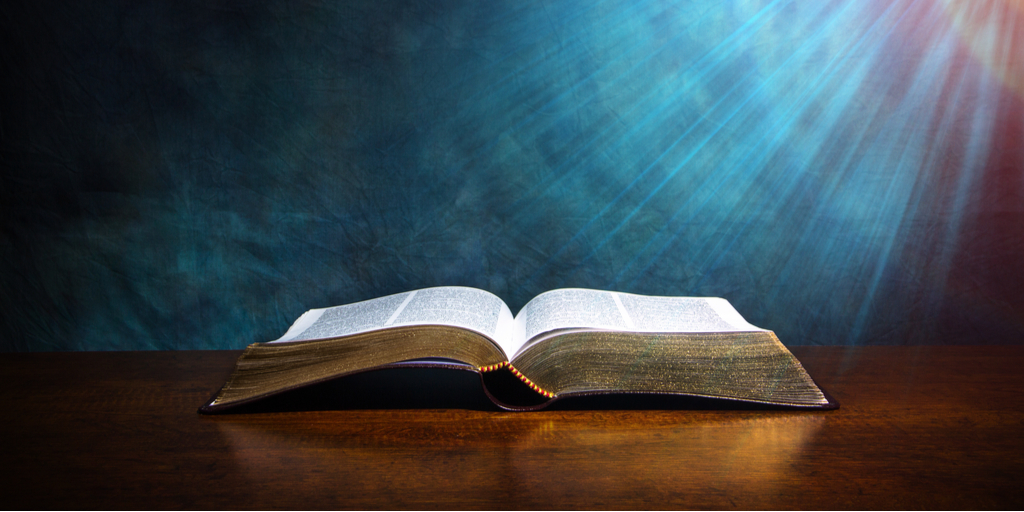Jacob’s Dream!

In the Scriptures we often find God speaking to men in dreams, even as Elihu said to Job, “For God speaketh…in a dream, in a vision of the night, when deep sleep falleth upon men” (Job 33:14, 15), and it was in this way that the Lord spoke to Jacob. This seems to have been Jacob’s first personal dealing with the Lord, though he had spoken to his father Isaac, saying, “The Lord thy God” (Genesis 27:20).
Like many another young man he was acquainted with the Name of the Lord, having heard it from the lips of his parents and having used it himself, although not having had as yet any personal acquaintance with the Lord.
Jacob had shown that he valued the birthright and the blessing of the Lord, even if he had obtained them in a very wrong way. God took notice of this even as His government took account of Jacob’s wrongdoing. God valued Jacob’s desire for His blessing, but He also dealt faithfully with his evil ways.
The Ladder that Reached to Heaven:
As Jacob dreamed, he saw a ladder set up on earth that reached to heaven, plainly teaching Jacob that there was a divine link between earth and heaven, and this link was maintained in God’s providence by angelic means, for the angels of God were “ascending and descending” on the ladder. Above the ladder was the Lord Himself, showing that the angelic ministry was directed by Him, the angels He sent forth on their earthly missions returning to Him to give account of what they had done for Him. It seems that the Lord alludes to this in John 1 when He said to Nathaniel, “Verily, verily, I say unto you, Hereafter [or Henceforth] ye shall see heaven open, and the angels of God ascending and descending upon the Son of Man” (John 1:51). Angelic ministry is now under the control of the Lord as Son of Man, as is seen in Acts 5:19; 10:3; 12:7–11; and Hebrews 1:14.
What the Lord Said to Jacob:
Every word spoken by the Lord was in richest grace. There was not, as we might have expected, a solemn rebuke to Jacob for his reproachful conduct. The Lord had not overlooked Jacob’s sins, but He was at this time declaring His sovereign grace. This is evident from the opening words of the Lord who declared Himself as “The LORD, the God of Abraham thy father, and the God of Isaac” (Genesis 28:13). The One who in His sovereign choice had called Abraham, and had chosen Isaac, was intervening to bless Jacob in spite of all he was naturally.
The first thing promised to Jacob was “the land whereon thou liest, to thee will I give it, and to thy seed.” This was the renewal of the promise given to Abraham and Isaac, which has already had a partial fulfilment, but which awaits complete fulfilment when, under Messiah, Israel will possess the land of promise.
The next part of the promise concerns the natural seed: “And thy seed shall be as the dust of the earth, and thou shalt spread abroad to the west, and to the east, and to the north, and to the south.” Scripture attests abundantly to the fulfilment of this part of the promise, and today, after all the attempts of different nations and individuals to exterminate the seed of Jacob, it is reckoned that there are over thirteen million of them in the world. Just before Christ reigns there will be the destruction of two-thirds of those in the land (Zechariah 13:8), and the rebels from among those returning to the land will be purged out (Ezekiel 20:38), but how vast will be the numbers of the seed of Jacob when they multiply unhindered during the millennium.
Then the Lord said to Jacob, “In thee and in thy seed shall all the families of the earth be blessed.” This will assuredly be brought to pass when Israel is blessed under Christ in the coming day. Even the inveterate foes of Israel, Egypt and Assyria, will be blessed in relation to the seed of Jacob, for it is written concerning the millennial day, “Blessed be Egypt my people, and Assyria the work of my hands, and Israel mine inheritance” (Isaiah 19:24, 25). No doubt the latter part of this can be applied to Christ, as it is in the promise made to Abraham (Galatians 3:16), for it is under Christ’s reign, and because of His death upon the cross, that the blessing comes to Jew and Gentile, both now and in the world to come.
How surpassingly gracious to Jacob are the words of verse 15, “And behold, I am with thee, and will keep thee in all places whither thou goest, and will bring thee again into this land: for I will not leave thee, until I have done that which I have spoken to thee of.” This was an unconditional promise from God to Jacob, and its complete fulfillment did not rest on anything that Jacob was or could do, but entirely on the grace and strength of the One who promised. God had undertaken, without any desire or request on the part of Jacob, to be with Jacob, to keep him wherever he would go, and to bring him back to the land from which he was going. God vouchsafed His presence to Jacob until He had accomplished all He now promised. Such is the grace of the God of Jacob; such is the grace of the God we have learned and know in Jesus, One who blesses unconditionally, and who will never leave us till He brings us home to our heavenly country.
Jacob’s Response:
We might have thought that with such a wonderful vision accompanied with such amazing promises from God that Jacob would have awakened with joy, but it was not so, for “he was afraid.” The realization that he was in the presence of God brought terror to the heart of the man who had deceived his father and robbed his brother. He had not come voluntarily into God’s presence, for he said, “Surely the Lord is in this place; and I knew it not.”
The presence of the Lord is not an attractive place to a wrongdoer: it is the last place he desires to be in, for God’s presence exposes what he really is. It is different with a repentant sinner who not only has seen himself exposed, but who, in the same light, has seen what God is in all the grace and goodness of His heart.
The poor sinner of Luke 7 did not feel the presence of Jesus to be a dreadful place, nor did the prodigal the presence of his Father when he had been kissed, robed and shod. All fear is driven from the heart that truly knows the love and grace of a Savior God.
Having been in the presence of God, Jacob felt that the place in which he was must be “the house of God…the gate of heaven,” but the feelings of his heart were so different from those of the Psalmist who wrote, “My soul longeth, yea, even fainteth for the courts of the Lord: my heart and my flesh crieth out for the living God” (Psalms 84:2).
God’s house is indeed the gate of heaven, the way into the enjoyment of the things that God has revealed by His Spirit, the things, too, revealed by the Son on earth who came to speak “heavenly things.”
Jacob, Moses, and David among the Old Testament saints could tell us of God’s house, but they could not enter within “the gate of heaven” as those who have boldness to enter the holiest by the blood of Jesus (Hebrews 10:19), and who “have access by one Spirit unto the Father” (Ephesians 2:18). What they said, and what has been written in the Old Testament, is full of instruction for us in a typical way, but the full truth of the house of God and of access into the presence of God awaited the coming of the Lord Jesus and His entry into heaven as Man.
Overcoming his first fear, “Jacob rose up early in the morning, and took the stone that he had put for his pillows, and set it up for a pillar, and poured oil upon the top of it, and he called the name of the place Beth-el,” which means the house of God. The pillar was a testimony to the wonderful event, to the beginning of a new chapter in Jacob’s eventful history, to his having rested in the presence of God, and to the rich promises of the God of all grace. Jacob signified the sacred character of all that happened that memorable night when he poured the oil on the top of the pillar. The old name of the place was Luz, meaning a curve, and it indicated what Jacob’s life had been, far from straight, but now for Jacob it was Bethel, the dwelling place of God, and it had a very significant place in Jacob’s later history (Genesis 28:19; 31:13; 35:1–16).
Jacob’s Vow:
How very feebly did poor Jacob answer in his vow to the unbounded and sovereign grace of God. Instead of simply thanking God for His grace, and rejoicing in it before Him, he started by saying “If God will be with me.” There was not the slightest reason for saying “if,” since God had promised to be with him unconditionally. God had promised to keep him wherever he would go but had not spoken of either bread or raiment, which evidently were prominent in Jacob’s thoughts. Simple faith in the Lord’s promise would have assured him of all his needs from day to day.
Again, God had promised to bring him back to the land, so that there was no need for any vow from Jacob. In his present state Jacob, like so many Christians, was thinking that something was required from him, although God had not spoken a word regarding this.
Still, with all his lack of simple faith in God, there was with Jacob the desire for the things of God, so that he added, “And this stone, which I have set for a pillar, shall be God’s house.” Like David in a future day, he desired to have a dwelling place for God, and there was the divinely given unction that enabled him to discern that the most suitable place for this dwelling was the place in which God appeared to him. It was to this very place that God recalled Jacob, saying, “Arise, go up to Bethel, and dwell there; and make an altar unto God” (Genesis 35:1), and on hearing this word, “Jacob said unto his household…Put away the strange gods that are among you” (v. 2). This call to Bethel aroused in Jacob the realization of the holiness of the God who had called him to His house and worship.
Finally, Jacob said, “And of all that Thou shalt give me I will surely give the tenth unto Thee.” Although Jacob had only asked for bread and raiment, he evidently felt that God would give him more, surely knowing that such a God would not be with him without prospering him. Of all that God would give him Jacob undertook to give back to God a tenth part. Here was Jacob striking a bargain with God, and certainly to his own advantage, but God knew the real and right desires of His poor servant, even if expressed in this way. Alas, many have been richly blessed in material things by God but have not even risen to Jacob’s tenth.
In Christianity all we possess is sometimes viewed as belonging to God, and we are but stewards of what God has given us (Luke 16:11, 12): but our present possessions are also viewed as our own (Acts 5:4), with the responsibility of using them aright. Those who are rich are not exhorted to give a tenth, but are to “be rich in good works, ready to distribute, willing to communicate” (1 Timothy 6:18). All who give are to do it with simplicity (Romans 12:8), even if we are not able, like the poor widow, to give all our living (Mark 12:41–44), or like the disciples of the Lord who left all to follow Him (Luke 18:28).





